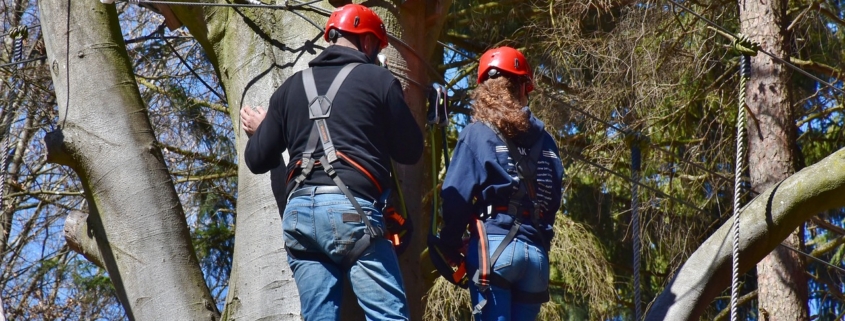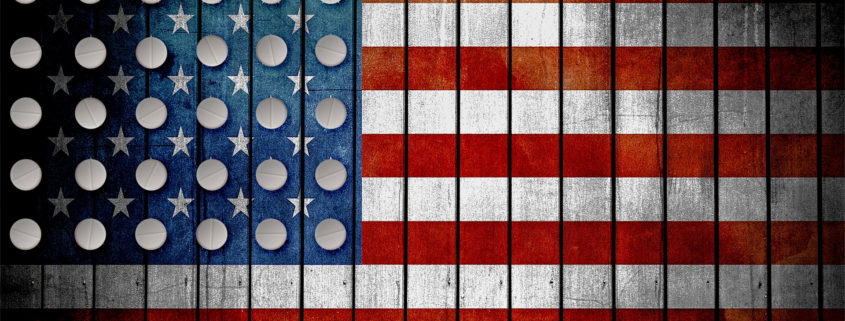by Danica Barnett
When heroin gained notoriety in the 1960s, the typical image of a “junkie” was someone who lived in a big city. Unlike other substances, the drug wasn’t thought of as a drug that impacted the average American. However, as heroin use began to spread, heroin has become a big issue in suburban and rural areas, as well as within cities.
Many people think that the heroin epidemic began with an increase in opioid prescriptions like Oxycodone in the 1990s, where doctors would prescribe opioid painkillers to treat anything from dental pain to post-surgery pain. Like heroin, prescription painkillers are highly addictive and those that take them have a high risk of developing a physical dependence on them. As prescriptions increased, people began using opioid painkillers with or without a prescription, which led to the DEA making it harder to obtain prescriptions for opioid painkillers and harder for users to crush pills to snort or inject.
Opioid painkillers give users a high that is similar to heroin, which is why opioid painkiller users began to turn to heroin, which can be cheaper and easier to obtain. Heroin can also be easier to use. Unlike prescription opioids, heroin is a fine powder that is easy for users to snort or inject.
Heroin addiction has become a major problem in the United States, which is currently in the middle of an opioid epidemic. Let’s take a look at what heroin is, signs and symptoms of heroin use, and how the opioid epidemic is affecting America.
What is heroin?
Heroin is a member of the opiate family, which means it is derived from the opium poppy plant, that was invented in 1874. Heroin was created from morphine in the hopes that it would be less addictive and used in cough medicines, to reduce pain during labor, and during surgery. However, when it was found to be just as addictive as opium and morphine, heroin was banned under the Heroin Act of 1924.
Heroin can appear several different forms–a white or brown powder and a solid sticky substance, known as black tar or sticky tar. The color of the substance denotes the purity of the heroin–white powder has the highest levels of purity. Typically, the appearance of heroin can vary by geographic location. White or off-white heroin is most common in the eastern United States. Brown powder and black tar heroin is most commonly sold in the western United States.
Pure heroin is difficult to find on the market because most dealers use other substances to cut the heroin, which allows them to sell more heroin to make a higher profit. However, adding other substances can make heroin more dangerous. Typically, heroin is cut with the following substances:
• Baking soda
• Caffeine
• Fentanyl
• Flour
• Laundry detergent
• Sugar
• Talcum powder
• Rat poison
Heroin can be cut with other drugs, like fentanyl, that make the drug more potent and increases the risk of overdose. However, they can also be cut with substances that appear to be harmless. However, some substances, like caffeine, can mask the symptoms of overdose.
Heroin is known by several street names: dope, horse, junk, and smack. Although there are several ways to ingest heroin, it it typically smoked, snorted, or injected. Heroin can be injected directly into the vein, subdermally (under the skin), or intramuscularly (into the muscle).
Heroin is a schedule I substance, which means it as a high potential for dependence and addiction, and is illegal in the United States.
What are the signs of heroin use?
There are several behavioral and physical signs that someone may be abusing heroin. Behavioral signs of heroin abuse include:
• Loss of appetite
• Changes in sleeping patterns
• Weight loss
• Changes in mood
• Intentionally hurting themselves or faking pain to receive painkiller prescriptions
• Avoiding loved ones
• Forgetting responsibilities and commitments
• Becoming violent
• Lying about their behavior
Heroin use can quickly cause a physical and psychological dependence. Physical signs of heroin abuse include:
• Dry mouth
• Flushed skin
• Decreased cognitive function
• Nausea
• Vomiting
• Unconsciousness
• Sweating
• Constipation
• Constructed pupils
• Lightheadedness
• Euphoria
• Lack of coordination
• Pain suppression
• Dizziness
• Drowsiness
• Irregular heartbeat
• Low blood pressure
• Hives or rash
• Difficulty breathing
• Seizures
What are the long-term effects of heroin use?
Depending on how it is ingested, heroin can have several long-term effects, including:
• Dependence
• Addiction
• Depression
• Antisocial personality disorder
• Abscesses or boils
• Infection of the heart lining or valves
• Collapsed veins
• Damage to the tissues in the nose or perforation of the septum
• Stomach cramping and constipation
• Sexual dysfunction in men
• Irregular menstrual cycles in women
• Pnuemonia
• Liver disease
• Kidney disease
• Infectious diseases like HIV, hepatitis B and hepatitis C
• Bacterial infections
• Arthritis
Can you overdose on heroin?
Large amounts of heroin can drastically slow down the heart rate and breathing, making it impossible to revive someone without medical help. Nalaxone is an opioid receptor antagonist that is commonly used to revive someone that has overdosed. Thousands of heroin overdoses are reported each year, which has led to an increased use of Nalaxone by emergency medical personnel.
It is easy to overdose on opiates and opioids, especially heroin. Potency can vary greatly between batches, which means the amount required to overdose can also vary.
Heroin and co-occurring drug use
Nearly all heroin users use other drugs, with the majority of heroin users using three or more additional drugs.
What is the heroin withdrawal timeline?
Heroin is a fast-acting drug, which means it is typically completely out of the body 5-7 days after use. While heroin detox varies based on the individual and their heroin use, most heroin users have a withdrawal experience similar to the heroin withdrawal timeline. Heroin withdrawal begins up to four hours after the last dose and typically continues for up to a week. Heavy or frequent heroin users may experience withdrawal symptoms for up to four weeks after their last dose.
In the first phase of heroin withdrawal, which can last between 1-3 days after last use, users typically experience the following symptoms:
• Headaches
• Increased aggression
• Irritability
• Muscle pain
• Sweating
• Stomach pain
• Anxiety
• Loss of appetite
• Insomnia
• Panic attacks
In the second phase of heroin withdrawal, which can last between 3-5 days after last use, users typically experience the following symptoms:
• Stomach cramps
• Muscle aches
• Fatigue
• Shivers
Heroin withdrawal can be uncomfortable, but it is very rare for heroin withdrawal to result in death. However, there are several medications that can assist in lessening heroin withdrawal symptoms.
Heroin and the opioid epidemic
Heroin use is growing at an alarming rate all across the United States and many people blame the prescription of opioid painkillers. On an average day, 580 people on the United States use heroin for the first time. Three out of four heroin users claim to have been abusing prescription opioid painkillers before they began abusing heroin. In 2015, opioid overdose deaths hit a record high of 33,000. Every day, opioid overdoses kill about 78 people.
According to researchers, heroin use is increasing among all demographics. With the increase in use comes an increase in dependence and overdose. The effects of the heroin epidemic are being felt across the country, particularly in rural communities. However, as the heroin epidemic continues to expand across the United States, lawmakers are working to increase programs to combat heroin addiction and make opioid receptor antagonists available to the public.




